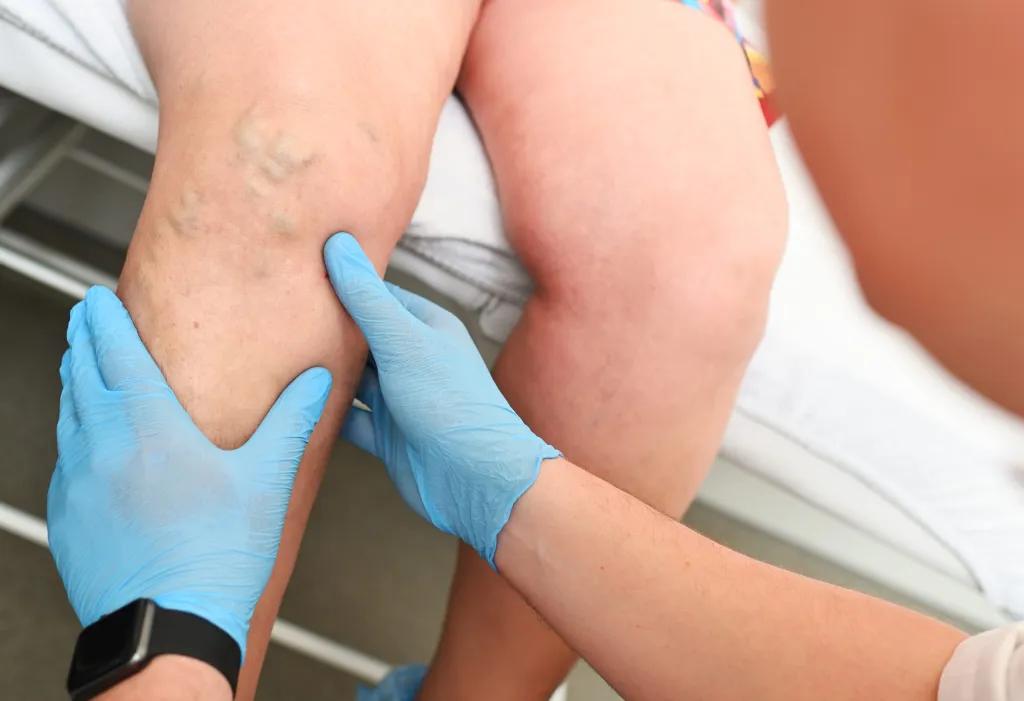Varicose veins often bring discomfort, including aching, swelling, and a feeling of heaviness in the legs. Certain lifestyle adjustments may help manage the discomfort associated with them. By incorporating specific habits into your daily routine, you have the ability to address the symptoms and support your overall vein health. Here are some lifestyle tips to reduce varicose vein discomfort:
Exercise Regularly
When you exercise, especially by using your legs, you help push blood from your lower body back toward your heart. This lifestyle change counteracts the pooling of blood that occurs in varicose veins. Low-impact activities are particularly helpful because they strengthen your calf muscles without putting excessive strain on your joints. Simple exercises you might try include:
- Walking
- Swimming
- Cycling
Gentle movements like ankle rotations and calf raises, performed while sitting or standing, promote better blood flow. Integrating short walks into your day, such as during a lunch break or in the evening, is a practical way to keep your legs active. The goal is to make regular physical activity a consistent part of your life.
Wear Compression Stockings
Compression stockings are designed to apply gentle, steady pressure to your legs. This pressure helps support your veins and improves the flow of blood from your legs up to your heart. The stockings are tightest at the ankle and gradually become less constrictive as they go up the leg.
They are designed to prevent blood from collecting in the lower leg veins, which may reduce swelling and aching. You may find these garments available in various sizes and pressure levels. Some are available over the counter, while others may require a prescription for a specific pressure grade.
Wearing them throughout the day, especially when you are on your feet for long periods, may help to reduce varicose veins symptoms. Make sure the compression garment fits properly for it to be effective and comfortable. Consulting with a healthcare professional can help determine the right type and pressure level for your specific needs.
Stay Hydrated
Proper hydration may help improve your circulatory health. When you drink enough water, your blood is thinner and flows more easily through your veins. Dehydration may cause your blood to thicken, making it more difficult for your circulatory system to function efficiently. This added strain might worsen the symptoms you experience with varicose veins.
Reduce Sodium Intake
Your diet influences your body in many ways, including fluid retention. Consuming high amounts of sodium can lead your body to hold onto excess water. This retention increases the volume of blood in your circulatory system and can put additional pressure on your veins, potentially aggravating varicose vein symptoms like swelling.
Reading food labels helps you become more aware of sodium content in packaged and processed foods. Opting for fresh, whole foods and seasoning your meals with herbs and spices instead of salt are ways to lower your sodium consumption. Small dietary modifications can make a difference in how your legs feel.
Get Treated for Varicose Veins
Modern varicose vein treatments are minimally invasive and designed to close off or remove the affected veins, redirecting blood flow to healthier ones. These procedures often resolve the underlying issue causing the discomfort. If your symptoms persist or worsen despite your efforts, seeking a medical evaluation is a proactive step. If you are ready to explore your options and find a more permanent solution for varicose vein discomfort, schedule a consultation with a vein specialist today.
